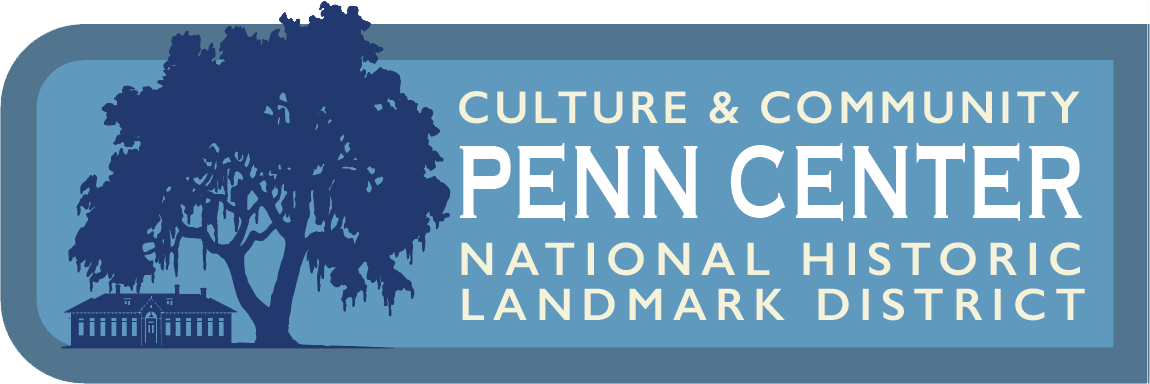Student Summer Research Residencies
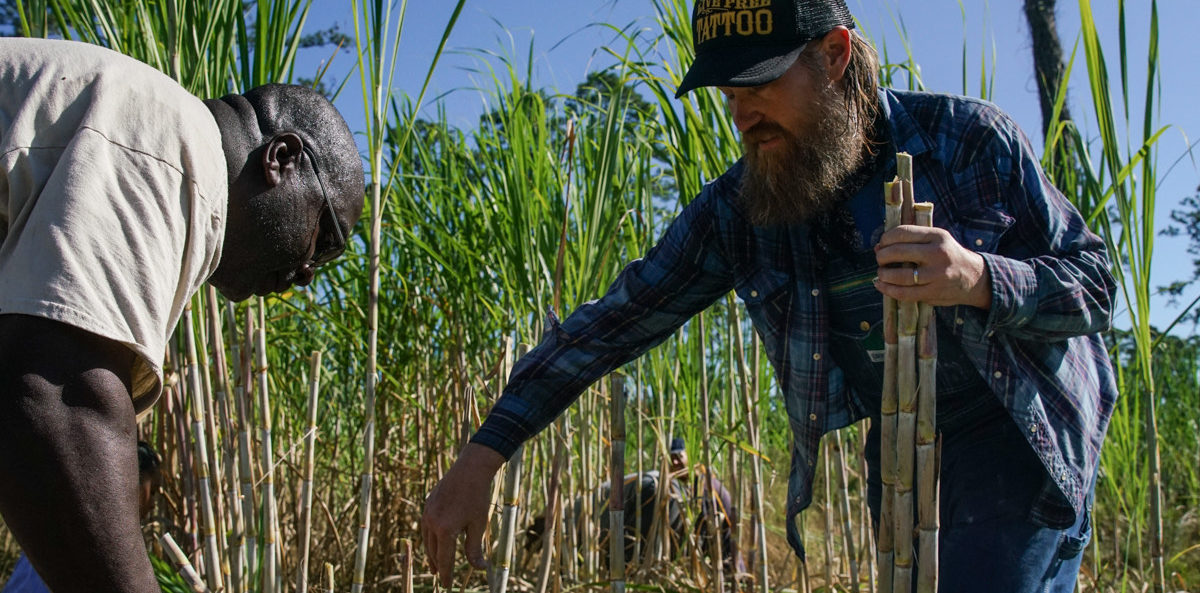
Annual calls are issued for faculty to lead undergraduate and graduate student place-based studies each academic year, which will be embedded in courses offered at UGA and partner institutions. Workshops will also be offered, which will be available more broadly.
Upcoming Summer Residencies
Spring 2025 Residencies: Gullah Spirit, Music, and Memory
Residential Week(s): May 14-19, 2025
Planning for the Spring 2025 Student Summer Research Residencies is currently underway. Institutions scheduled to participate are Claflin University, the College of Charleston, Emory University, Georgia Institute of Technology, the Howard University Chadwick Boseman School of Fine Arts, the University of Georgia, the University of Michigan Schools of Engineering and Music, Theatre, and Performing Arts, and the University of North Carolina – Chapel Hill. Course descriptions will be added as they are confirmed.
An additional partner during the spring residencies is the Mellon Foundation-funded production company VisionIntoArt (VIA). They will work with students daily on a curriculum advancing Gullah community, educational, and economic values in tandem with their work in progress titled We Were Fridays. VIA co-founder Jeffrey Zeigler, a cellist and composer, is exploring the Gullah journey from slavery to freedom and his own Gullah ancestry in this original multidisciplinary production, which fuses classical music, Gullah spirituals, jazz, and dance. Grammy-nominated tenor Victor Ryan Robinson, the Culture and Community 2025 artist in residence, as well as our 2025 community fellows, Ben C. Johnson and Charity Coleman, will also interact with students and faculty during the residency week.
Course Descriptions:
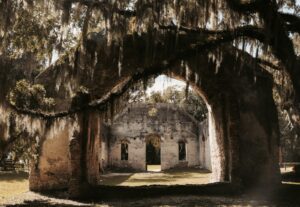 AAAD 395: Through the Archives – Gullah Geechee History, Traditions, and Culture
AAAD 395: Through the Archives – Gullah Geechee History, Traditions, and Culture
Ms. Chaitra Powell, Curator, Southern Historical Collection, Wilson Special Collections Library, University of North Carolina-Chapel Hill
This course will engage with the history, culture, and traditions of the Gullah Geechee people, through the archives. A thorough examination of “primary sources” in Chapel Hill and at the Penn Center will be the drumbeat of this class. We will be looking at archival materials, folktales, visual art, films, novels, and other secondary materials to explore these themes.
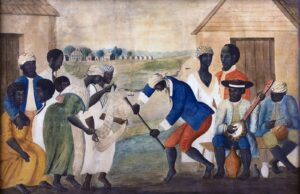 AAAS 253 / HIST 253: Lowcountry and the Atlantic World
AAAS 253 / HIST 253: Lowcountry and the Atlantic World
Dr. Catherine Adams, Associate Professor, African and African American Studies, Claflin University
A survey of the history and culture of South Carolina’s Low Country and its cross-cultural connections with the Atlantic World including Barbados, Haiti, and Sierra Leone from the early colonial period to present-day. It highlights the contributions and cultures of the indigenous populations including Creek, Cherokee, and Africans imported for the purpose of chattel slavery. Examines labor systems, food ways, music, language, culture, and the historical origins of current social, political, and economic problems.
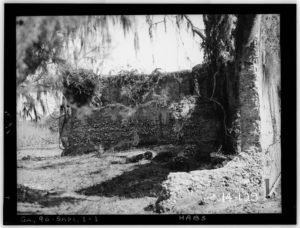
ENGL 110: “Pick[ing] up a camera” and Capturing Truths about Race, the Environment, and Social Justice
Dr. Valerie Frazier, Associate Professor, Dept. of English, College of Charleston; Director, 1967 Legacy Program
In this class, we will discuss how to re-envision literature classrooms through connecting the study of race and textual analysis with smartphone photography. Students across disciplines increasingly will use their smartphones as avenues of storytelling about race, class, the environment, and social justice advocacy. Students will begin to see their worlds in new ways, using their camera lens much in the way of Gordon Parks, who once said, “I picked up a camera because it was my choice of weapons against what I hated most about the universe: racism, intolerance, poverty.” Smartphone photography and literature help open up conversations in the classroom about race, the natural environment, and systemic racism.
Students will be inspired by a cross-section of literary texts about race and photography by authors like Alice Walker, Eudora Welty, bell hooks, and Maxine Hong Kingston. Juxtaposed with photography by Ming Smith, Gordon Parks, Ruddy Roye, Flo Ngala, and Devin Allen, the writings will encourage students to take their social justice photography to new heights, particularly inspired by the bountiful natural setting of St. Helena Island and Penn Center. We will also focus on the legacy of Civil Rights photography that includes the work of Cecil Williams, Leonard Freed’s series Black in White America, Ernest C. Withers’ photographs of the Sanitation Workers’ Solidarity March in Nashville, and Charles Moore’s documentation of police brutality during the 1963 Birmingham Children’s Crusade. This class, centering on literature, race, the environment, and smartphone photography, will give students an opportunity to photograph the world around them and make a living, organic record of the multicultural history in their midst.
Previous Summer Residencies
Summer 2022 Residencies: Land, Liberation, and Justice
Residential Week: June 2-7, 2022
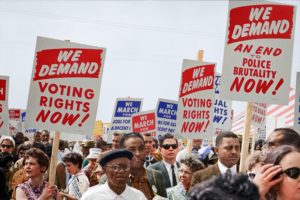
Workshop on the Fifteenth Amendment
Mr. Charles S. Johnson III, Chair, Board of Directors, Georgia Budget and Policy Institute; and Retired Vice President and Counsel for External Affairs, Tuskegee University
Many believe that American democracy is most representative when every person has the ability to cast their ballot and make their voice heard in the political process. However, neither the original Constitution nor the Bill of Rights nor any other provision of the Constitution expressly guarantees the right to vote. The Framers of the U.S. Constitution left it to each state to determine who qualifies as a voter. Throughout the nation’s history, states would exercise this power to exclude African Americans.
The Fifteenth Amendment was adopted after the Civil War to prohibit denying the right to vote on the basis of race. Following the adoption of this amendment, however, the United States Supreme Court intervened in a manner which vastly eroded the amendment’s effectiveness. The Court’s intervention enabled the curtailment of voting access by means of rampant voter suppression. Poll taxes, literacy tests, and other hurdles were implemented that intentionally discriminated against African Americans. As a result of these devices, despite the adoption of the Fifteenth Amendment, African American voting in the South was kept at extremely low levels until the passage of the Voting Rights Act in 1965.
Through review of primary and secondary historical material and pertinent court decisions, we will examine how, when viewed through the lens of this history, the court’s recent action in g limiting the effectiveness of the Voting Rights Act may be seen as part of a larger trend.

ENGL 110: “Pick[ing] up a camera” and Capturing Truths about Race, the Environment, and Social Justice
Dr. Valerie Frazier, Associate Professor, Dept. of English, College of Charleston; Director, 1967 Legacy Program
In this class, we will discuss how to re-envision literature classrooms through connecting the study of race and textual analysis with smartphone photography. Students across disciplines increasingly will use their smartphones as avenues of storytelling about race, class, the environment, and social justice advocacy. Students will begin to see their worlds in new ways, using their camera lens much in the way of Gordon Parks, who once said, “I picked up a camera because it was my choice of weapons against what I hated most about the universe: racism, intolerance, poverty.” Smartphone photography and literature help open up conversations in the classroom about race, the natural environment, and systemic racism.
Students will be inspired by a cross-section of literary texts about race and photography by authors like Alice Walker, Eudora Welty, bell hooks, and Maxine Hong Kingston. Juxtaposed with photography by Ming Smith, Gordon Parks, Ruddy Roye, Flo Ngala, and Devin Allen, the writings will encourage students to take their social justice photography to new heights, particularly inspired by the bountiful natural setting of St. Helena Island and Penn Center. We will also focus on the legacy of Civil Rights photography that includes the work of Cecil Williams, Leonard Freed’s series Black in White America, Ernest C. Withers’ photographs of the Sanitation Workers’ Solidarity March in Nashville, and Charles Moore’s documentation of police brutality during the 1963 Birmingham Children’s Crusade. This class, centering on literature, race, the environment, and smartphone photography, will give students an opportunity to photograph the world around them and make a living, organic record of the multicultural history in their midst.
SANT 430: Special Topics – Black Food Geographies (Spelman College)
Dr. Nik Heynen, Distinguished Research Professor, Dept. of Geography, University of Georgia
This class will explore the multifaceted dimensions of Black food geographies. Of especial focus will be themes including land and food justice, land theft, food sovereignty, food movement mobilization, reparations, and the ongoing importance of abolitionist politics for Black food geographies. The class will use a long-term partnership with Saltwater Geechee residents of Sapelo Island working on an agricultural revival amidst the pressures of development, sea-level rise and cultural genocide.
Course objectives include: to increase students’ geographic literacy generally; to increase students’ understanding and imagination related to Black Food Geographies specifically; to contribute to students’ ability to interpret information about the interrelated and interconnected power relations connected the long history of Black Food Geographies; to introduce/extend students’ knowledge about the Gullah/Geechee culture as connected to Black Food Geographies; and to introduce/extend students’ experience with the significance of Gullah/Geechee culture as connected to Black Food Geographies through visiting Sapelo Island.
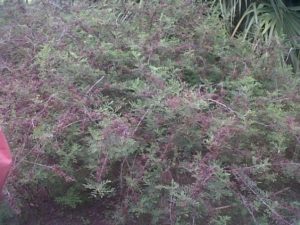
Workshop on Liberation Farming, Indigo and Community Economic Development
Mr. Maurice Bailey, Director, Save Our Legacy Ourself (SOLO), Hog Hammock, Sapelo Island, and Dr. Nik Heynen, Distinguished Research Professor, Dept. of Geography, University of Georgia
Indigo is a flowering plant that has over 750 species and has been grown by farmers for more than 4000 years. Some of the earliest instances of indigo cultivation go back to ancient Aztec shamans and Egyptian pharaohs who used the plant for magic and ritual purposes. One of the first written references of the plant was written by Marco Polo, who saw it when visiting southern India in 1298.
In 1744 Eliza Lucas helped usher in a new moment in the colonial circulation of indigo and shape Lowcountry geographies when she grew the plant and processed it to make the dye from her father’s plantation outside of Charleston, South Carolina. Lucas exported six pounds of what she called “Carolina Indigo” to England. Because of the attention it received by London elites, the British government offered a bonus of six pence per pound of indigo in an attempt to incentivize export production from the Lowcountry. As they hoped it would do, indigo saw a meteoric increase in its export from six pounds in 1744 to 5,000 pounds in 1745. Just a decade later, growers in Carolina Colony were exporting approximately 200,000 pounds yearly.
In 2018, UGA’s Cornelia Walker Bailey Program on Land and Agriculture, co-directed by Maurice Bailey and Nik Heynen, entered into a partnership with the International Center for Indigo Culture (ICIC) and the State Botanical Garden at the University of Georgia (SBG) to re-introduce indigo on Sapelo Island. This effort is now being led by the Sapelo Island based non-profit, Save Our Legacy Ourself (SOLO), which Bailey directs. Together we are working to grow heritage crops, like indigo, for the sake of economic development within Sapelo Island’s Hog Hammock community. This workshop will discuss how the Lowcountry and Georgia’s Barrier Islands have been shaped by indigo, and how community economic development based in liberation farming is working to transform this history to benefit the Gullah/Geechee descendants whose ancestors allowed indigo to blossom through their forced laboring. We will also work through the harvesting and indigo dye-making process with Sapelo- grown indigo plants.
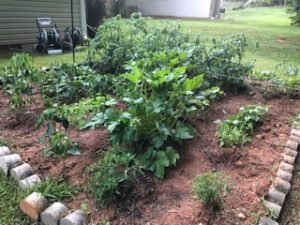
ENGL 4960R: Land as Liberation in the African American Freedom Struggle
Dr. Barbara McCaskill, Professor, Dept. of English; Associate Academic Director, Willson Center for Humanities and Arts, University of Georgia
Land is a through-line that has linked Black Americans across the liberation struggle from slavery to now. It also has served as a flashpoint for protest against social and environmental injustice and for launching antiracist, environmentally sustainable communities. The role of rural Black communities in the freedom struggle is too often dismissed as secondary to the advocacy of national organizations and as muted in comparison to activism accomplished in urban spaces. Through multidisciplinary discussions of literature and film and a final week’s learning residency at the Penn Center National Historic Landmark, we will discover the many ways in which Black southern farmers and Black farm communities of the rural South have played vital roles in identifying and protesting racial inequities, shaping policies for social change, shaping a relationship between land and culture, and advancing land ownership as a central component of the freedom struggle.
Informed by the writings of Monica White, Leah Penniman, Eric Holt-Giménez, Margaret Marietta Ramírez, and others, we will spend the first week of this course discussing specific ways in which Black southern farmers and farmlands have informed by and been inosculated with grassroots organizing and social justice movements, including William and Ellen Craft’s Reconstruction-era Woodville Farm School outside of Savannah; the Freedom Farm Cooperative established in 1969 in Sunflower, Mississippi by Fannie Lou Hamer; Shirley and Charles Sherrod’s New Communities, Inc. collective farm created in Albany, Georgia in 1969; and the interracial Koinonia Farm founded by Rev. Clarence Jordan in 1942 outside of Americus, Georgia. During the second week we will examine Gloria Naylor’s Mama Day (1988), set on fictional Willow Springs, an African American island town off Georgia and South Carolina; Randall Kenan’s If I Had Two Wings: Stories (2020), set in the fictional Black community of Tims Creek, North Carolina; and Octavia Butler ‘s Parable of the Sower: A Novel (1993), set in a dystopian 2025 landscape altered by climate change; as well as documentary film that links land to African American’s political struggle and cultural survival. At Penn Center, we will study its role as a planning site for Dr. King, John Lewis, Andrew Young, and other members of the Southern Christian Leadership Conference and Student Nonviolence Coordinating Committee. We will study its function as a Freedom School, led by civil rights activist Septima Clark, to educate Black community members about the vote, civics, American history, and meanings of citizenship.
Summer 2023 Residencies: Community-Engaged Traditions And Practices
Residential Week One: May 18-21, 2023
“Land, Liberation, and Justice”

ENGL 4960R: Land as Liberation in the African American Freedom Struggle
Dr. Barbara McCaskill, Professor, Dept. of English; Associate Academic Director, Willson Center for Humanities and Arts, University of Georgia
Land is a through-line that has linked Black Americans across the liberation struggle from slavery to now. It also has served as a flashpoint for protest against social and environmental injustice and for launching antiracist, environmentally sustainable communities. The role of rural Black communities in the freedom struggle is too often dismissed as secondary to the advocacy of national organizations and as muted in comparison to activism accomplished in urban spaces. Through multidisciplinary discussions of literature and film and a final week’s learning residency at the Penn Center National Historic Landmark, we will discover the many ways in which Black southern farmers and Black farm communities of the rural South have played vital roles in identifying and protesting racial inequities, shaping policies for social change, shaping a relationship between land and culture, and advancing land ownership as a central component of the freedom struggle.
Informed by the writings of Monica White, Leah Penniman, Eric Holt-Giménez, Margaret Marietta Ramírez, and others, we will spend the first week of this course discussing specific ways in which Black southern farmers and farmlands have informed by and been inosculated with grassroots organizing and social justice movements, including William and Ellen Craft’s Reconstruction-era Woodville Farm School outside of Savannah; the Freedom Farm Cooperative established in 1969 in Sunflower, Mississippi by Fannie Lou Hamer; Shirley and Charles Sherrod’s New Communities, Inc. collective farm created in Albany, Georgia in 1969; and the interracial Koinonia Farm founded by Rev. Clarence Jordan in 1942 outside of Americus, Georgia. During the second week we will examine Gloria Naylor’s Mama Day (1988), set on fictional Willow Springs, an African American island town off Georgia and South Carolina; Randall Kenan’s If I Had Two Wings: Stories (2020), set in the fictional Black community of Tims Creek, North Carolina; and Octavia Butler ‘s Parable of the Sower: A Novel (1993), set in a dystopian 2025 landscape altered by climate change; as well as documentary film that links land to African American’s political struggle and cultural survival. At Penn Center, we will study its role as a planning site for Dr. King, John Lewis, Andrew Young, and other members of the Southern Christian Leadership Conference and Student Nonviolence Coordinating Committee. We will study its function as a Freedom School, led by civil rights activist Septima Clark, to educate Black community members about the vote, civics, American history, and meanings of citizenship.

ENGL 110: “Pick[ing] up a camera” and Capturing Truths about Race, the Environment, and Social Justice
Dr. Valerie Frazier, Associate Professor, Dept. of English, College of Charleston; Director, 1967 Legacy Program
In this class, we will discuss how to re-envision literature classrooms through connecting the study of race and textual analysis with smartphone photography. Students across disciplines increasingly will use their smartphones as avenues of storytelling about race, class, the environment, and social justice advocacy. Students will begin to see their worlds in new ways, using their camera lens much in the way of Gordon Parks, who once said, “I picked up a camera because it was my choice of weapons against what I hated most about the universe: racism, intolerance, poverty.” Smartphone photography and literature help open up conversations in the classroom about race, the natural environment, and systemic racism.
Students will be inspired by a cross-section of literary texts about race and photography by authors like Alice Walker, Eudora Welty, bell hooks, and Maxine Hong Kingston. Juxtaposed with photography by Ming Smith, Gordon Parks, Ruddy Roye, Flo Ngala, and Devin Allen, the writings will encourage students to take their social justice photography to new heights, particularly inspired by the bountiful natural setting of St. Helena Island and Penn Center. We will also focus on the legacy of Civil Rights photography that includes the work of Cecil Williams, Leonard Freed’s series Black in White America, Ernest C. Withers’ photographs of the Sanitation Workers’ Solidarity March in Nashville, and Charles Moore’s documentation of police brutality during the 1963 Birmingham Children’s Crusade. This class, centering on literature, race, the environment, and smartphone photography, will give students an opportunity to photograph the world around them and make a living, organic record of the multicultural history in their midst.
Gullah/Geechee Field School: History, Legacy, and Service (Georgia State University)
Dr. Tiffany A. Player, Assistant Professor of History, and Dr. Ras Michael Brown, Associate Professor of History, Georgia State University
The Gullah/Geechee Field School blends rigorous study with intensive engagement during two separate on-site residencies on St. Helena Island, South Carolina (May 18-21) and Daufuskie Island, South Carolina and Savannah, Georgia (May 23-26) to immerse students in the interplay of scholarship and service. While much of the academic interest in Gullah/Geechee communities has been directed toward observing and analyzing people, their places, and their cultures, the Field School recognizes the importance of contributing to their continued vitality through both short-term and long-term service. Heritage preservation and efforts to protect historical and cultural resources from physical destruction and narrative erasure feature centrally in the ways that students explore key African American sites in both rural and urban contexts.
Through collaborative learning at the Penn Center National Historic Landmark District, students grow to understand why these communities and landscapes matter for historical knowledge and current concerns over relationships between people and their natural and built environments. In the course’s culminating activity, students express what they have learned and experienced by giving their strength and energy to the ongoing work of restoring and maintaining one of the cemeteries on Daufuskie Island.
Residential Week Two: May 23-26, 2023
“Community-Based Archives”

Workshop on Liberation Farming, Indigo and Community Economic Development
Mr. Maurice Bailey, Director, Save Our Legacy Ourself (SOLO), Hog Hammock, Sapelo Island, and Dr. Nik Heynen, Distinguished Research Professor, Dept. of Geography, University of Georgia
Indigo is a flowering plant that has over 750 species and has been grown by farmers for more than 4000 years. Some of the earliest instances of indigo cultivation go back to ancient Aztec shamans and Egyptian pharaohs who used the plant for magic and ritual purposes. One of the first written references of the plant was written by Marco Polo, who saw it when visiting southern India in 1298.
In 1744 Eliza Lucas helped usher in a new moment in the colonial circulation of indigo and shape Lowcountry geographies when she grew the plant and processed it to make the dye from her father’s plantation outside of Charleston, South Carolina. Lucas exported six pounds of what she called “Carolina Indigo” to England. Because of the attention it received by London elites, the British government offered a bonus of six pence per pound of indigo in an attempt to incentivize export production from the Lowcountry. As they hoped it would do, indigo saw a meteoric increase in its export from six pounds in 1744 to 5,000 pounds in 1745. Just a decade later, growers in Carolina Colony were exporting approximately 200,000 pounds yearly.
In 2018, UGA’s Cornelia Walker Bailey Program on Land and Agriculture, co-directed by Maurice Bailey and Nik Heynen, entered into a partnership with the International Center for Indigo Culture (ICIC) and the State Botanical Garden at the University of Georgia (SBG) to re-introduce indigo on Sapelo Island. This effort is now being led by the Sapelo Island based non-profit, Save Our Legacy Ourself (SOLO), which Bailey directs. Together we are working to grow heritage crops, like indigo, for the sake of economic development within Sapelo Island’s Hog Hammock community. This workshop will discuss how the Lowcountry and Georgia’s Barrier Islands have been shaped by indigo, and how community economic development based in liberation farming is working to transform this history to benefit the Gullah/Geechee descendants whose ancestors allowed indigo to blossom through their forced laboring. We will also work through the harvesting and indigo dye-making process with Sapelo- grown indigo plants.
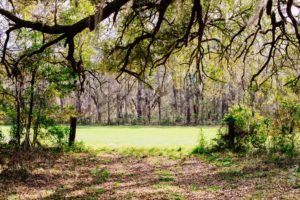
Community-Driven Archives Methods and Practices
Ms. Chaitra Powell, Curator, Southern Historical Collection, Wilson Special Collections Library, University of North Carolina-Chapel Hill, and Ms. Brianna McGruder, Teaching Assistant, UNC-Chapel Hill
Since 1962, Penn School archival materials have been housed at the Southern Historical Collection, part of the Wilson Special Collections Library with the University of North Carolina at Chapel Hill Libraries. The upcoming sixtieth anniversary of this relationship offers an opportunity to revisit it through the lens of the lessons learned from our recent community driven archives grant to collaborate and co-create with the community in a variety of ways.
In this course, students will learn about and engage with the history of the Penn Center collections at Wilson Library, before travelling to St. Helena Island, South Carolina to engage with community stakeholders and review archival materials in Penn Center buildings. Students will learn about community-driven archives methods and practices in collaboration with the Penn Center and in support of the Center’s mission to preserve Gullah Geechee history and culture through their archives.
The Penn School was founded in 1862 on St. Helena Island, one of the first schools in the South for formerly enslaved West Africans. In 1948, Penn School transitioned into Penn Community Services, taking on the mantle of social justice and ushering in the Civil Rights Movement of the 1960s with Dr. Martin Luther King, Jr. and the Southern Christian Leadership Conferences. In 2017, the Penn Center was anointed as a Reconstruction Era National Monument. Currently, the Penn Center continues to preserve and celebrate Gullah Geechee history and culture through community education, engagement, and programming.
Midwifery and Medicine Traditions
Dr. Seretha Williams, Professor and Chair, Dept. of English and World Languages, Augusta University
Women have always been healers. They have been nurses, midwives, herbalists, therapists, and conjurers. Yet, some women have been persecuted for their healing work. Communities, religious institutions, and the medical establishment have viewed women healers as a threat and labelled them as quacks and witches. Their folk knowledge and remedies have been dismissed as old wives’ tales. Their practices have been deemed dark magic. However, in literature, women healers are often celebrated as wise women who tend to the physical and psychic well-being of their communities. The woman healer is thus more than an archetype or trope. In this course, we will reconsider the healer and the role of healing in fiction. Margaret Walker’s Jubilee (1966), Toni Cade Bambara’s The Salt Eaters (1980), Gloria Naylor’s Mama Day (1988), and Julie Dash’s Daughters of the Dust (1991) will serve as cultural artifacts and touchpoints for our reconsideration of healers.
Our reconsideration also will be informed through our study of midwifery in South Carolina. The December 3, 1951 issue of Life magazine included a photographic essay on the topic of nurse midwives. W. Eugene Smith’s essay focused on the work of Maud Callen, a nurse midwife hired in 1935 by the Division of Maternal and Child Health to supervise midwives in rural South Carolina (Lisa Ennis, SC Encyclopedia, 4/15/16). At Penn Center, Callen established the Midwife Training Institute with Dr. Hilla Sheriff, where lay midwives earned licenses for participating in formal medical training (Ennis). According to the Medical University of South Carolina, in 1950 alone, approximately one hundred state licensed grand midwives assisted in more than fifteen thousand births in the state (Bonds, Medical University of SC, 2/25/21). Callen, whose career as a registered nurse and licensed midwife began in 1923, served Berkeley County, SC and the surrounding area for five decades. She provided care and educated the lay midwives who were usually the only medical resource for rural African Americans.
Callens’ work with midwifery will serve as a theoretical underpinning for our exploration of medicine traditions and healing in African American women’s fiction. We will also investigate the folk healing practices of rural Georgia and South Carolina. The intention of our research is to understand the value and the values of African American healing practices.
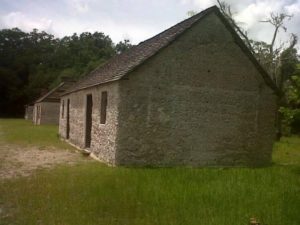
Building an Expanded Archive
Dr. Valerie Babb, Andrew W. Mellon Professor of Humanities, Depts. of English and African American Studies, Emory University
As part of the Culture and Community at the Penn Center National Historic Landmark District project, this course will explore the significances of archives, their accessibility, their sustainability, and their relationships to social justice efforts.
We will begin our course investigating Emory University Rose Library’s holdings of the papers of the Southern Christian Leadership Conference, Rev. C. T. Vivian, and the Southern Regional Council to consider the impact of remembrance, documentation, and social justice on the forms that archives take. We will contemplate how the arc of an archive reflects changing societal values and temporalities and ask: What might a social justice archive look like? The second portion of the course will be held at the Penn Center, St. Helena Island, South Carolina, a site whose illustrious history includes housing the former Penn School, one of the earliest educational institutions for the newly freed. The Penn Center also hosted the Southern Christian Leadership Conference, the Congress of Racial Equality, the Student Nonviolent Coordinating Committee, and the NAACP as these groups planned their civil rights tactics. Portions of Rev. Martin Luther King Jr.’s “I Have A Dream” speech for the August 28, 1963 March on Washington for Jobs and Freedom were discovered in a Penn Center cottage named for Hastings Gantt, the formerly enslaved man who was ultimately able to donate fifty acres to found the Penn School. While onsite we will consider how archives shape social narratives and the ways in which different cultures rewrite these through the creation of their own archives. We will participate in the ongoing Penn Center initiative “Broadening Narratives” that seeks to augment its York Bailey Museum and extend preservation of Reconstruction history and Gullah Geechee culture.
In addition to coursework, students will participate in scheduled arts expositions, performances, and community conversations on subjects such as land use and environmental education, heirs’ property rights, and sacred spaces.
THEA 5630/7630: Devising the Archive at the Penn Center
Dr. Emily Sahakian, Associate Professor and Undergraduate Coordinator, Dept. of Theatre and Film Studies, and Associate Professor, Dept. of Romance Languages, University of Georgia
This course builds on a class I will lead during Spring and Maymester 2023, titled Community-Based Theatre (THEA 5710/7710S). These classes will work with archival materials of the Penn Center Collection at the University of North Carolina at Chapel Hill and other resources to begin to script a community-based theatre piece — an activist form of theatre used to foster civic engagement, dialogue, and community problem-solving —focused on the educational roots and legacy of Penn Center. Informed by the critical pedagogy of Paolo Freire, who advanced the idea of education as a liberatory and empowering practice (Pedagogy of the Oppressed, 1968) and Augusto Boal’s adaptation of Freire’s ideas to the theatre (Theatre of the Oppressed, 1974), and working with original archival documents from the Penn Center Collection at the University of North Carolina at Chapel Hill, the University of Georgia’s Special Collections Libraries, historical newspapers databases, and other resources, Spring and Maymester 2023 students will devise theatre scenes that share the Penn Center’s fascinating activist history, while dramatizing questions that continue to pervade interracial, antiracist efforts, such as: What constitutes an antiracist education? Who decides what content is valuable, and who benefits from it? How can we use theatre to celebrate, share, and extend the Penn Center’s history of civic activism and social justice? They will obtain feedback from a focus group of St. Helena Island and Sea Island community members land staff at the Penn Center.
During this Summer 2023 course residency, students will continue to devise scenes, work from the archives, and solicit insights and input from the community focus group. Inspired by the writings of Paolo Freire, bell hooks, Augusto Boal and others, they will practice a theatre that educates audiences and provokes thought. Their community-engaged theatre can be understood as a form of service; they will present a scene or two from the evolving performance to community members during their residence.
Summer 2024 Residencies: Inner Transformation, Outer Engagement
Residential Week One: May 15-19, 2024
HIST/AAAS 253 – Lowcountry in the Atlantic World
Kathryn M. Silva, Ph.D. (she/her), Associate Professor of History & Chair, Department of Humanities, Claflin University
A survey of the history and culture of South Carolina’s Lowcountry in a global context. It highlights the contributions and cultures of the indigenous populations and Africans imported for chattel slavery, with a focus on the Lowcountry’s Gullah-Geechee community. This course will examine labor systems, foodways, music, language, and culture emphasizing the historical origins of current social, political, and economic issues. At the end of this course, students will have in-depth knowledge of the history of South Carolina’s Lowcountry and the Atlantic World. The course focuses on the Lowcountry’s cross-cultural connections with the Atlantic World including Barbados, Haiti, and Sierra Leone from the early colonial period to the present day.
Silva’s book manuscript in progress, “At Times We May Seem Bold:” African American Women in the Southern Textile Industry, From Slavery to Civil Rights,” examines the role of Black women in the Southern textile industry. She published “Daughters and Sons of the Dust: The Challenges of Accuracy in African American Historical Film” The History Teacher (February 2018) and “African American Millhands, the Durham Hosiery Mills, and the Politics of Race and Gender in the Durham’s Textile Industry, 1903-1920” North Carolina Historical Review, Spring 2017. Her research earned grants from the John Hope Franklin Research Center for African and African American History and Culture, Duke University, Institute for Southern Studies, University of South Carolina, and the Archie K. Davis Fellowship, North Caroliniana Society, Chapel Hill. Silva served as co-lead writer and Program Director on a $500,000 three-year Andrew W. Mellon Grant to infuse workforce competencies in Claflin’s Humanities General Education courses. Dr. Silva holds a B.A. in History and Africana Studies from the University of Massachusetts, Boston, and an M.A. and Ph.D. in History from the University of South Carolina.
ARCH 4823 / 6160 / 6352 – Race, Space, and Architecture in the United States
Danielle S. Willkens, Associate Professor, School of Architecture, Georgia Institute of Technology
Focusing on the history, constructs, and impacts of race and space in the United States, this course and its discussions are inherently intersectional, addressing ethnicity, gender, ablism, class, and environmentalism. Content references the projects and methodologies of not only architects and architectural historians, but also archaeologists, artists, designers, environmentalists, ethnographers, historians, photographers, urbanists, sociologists, technicians, and writers. Through historiography, the seminar counters the stance that Black history in the built environment is studied only alongside stories of white supremacy. By enacting research, reflective interpretation, and productive creativity, this course questions how architectural history and design can forward, but also hinder, components of social justice and equity.
Although an established listing on Georgia Tech’s schedule of classes, the seminar had not been taught between 2012 and 2020. It was reactivated by junior faculty member Danielle S. Willkens for the spring terms of 2021, 2022, and 2023, where students worked collaboratively to honor erased histories and contribute to Atlanta’s documentary record for preservation advocacy and public outreach. In the last three years, student cohorts intensely studied fourteen sites through unprecedented 3D scanning, photogrammetry, and archival research. These methods demystify digital documentation technologies and allow students to address critical questions of conservation and restoration, as well as community-grounded field work, especially at contested sites. Furthermore, endeavors in digital documentation and focused research can be cost-prohibitive for certain sites, especially in underserved areas, so this truly is a service-learning endeavor in preservation. Student work resulted in new funding for community organizations, Section 106 reviews, local designation protections, Historic American Building Survey (HABS) records, and podcasts. The spring 2024 iteration places the only two National Historic Landmark Districts (NHLD) focused on African American history and culture in conversation: the Penn Center (NHLD est.2017) in St. Helena Island, SC, and Sweet Auburn (NHLD est.1976) in Atlanta, GA. Using the Atlanta site to begin initial investigations and practice documentation techniques, the seminar explores preservation technology practices as a catalyst for resiliency, sustainability, and heritage tourism. Course deliverables focus on documentation and working alongside community and non-profit partners for the design and execution of tools for public historic interpretation, outreach, and exploration. Travel and products are supported by a GT Undergraduate Education Initiative Grant.
Residential Week Two: May 21-25, 2024

ENGL 110: “Pick[ing] up a camera” and Capturing Truths about Race, the Environment, and Social Justice
Dr. Valerie Frazier, Associate Professor, Dept. of English, College of Charleston; Director, 1967 Legacy Program
In this class, we will discuss how to re-envision literature classrooms through connecting the study of race and textual analysis with smartphone photography. Students across disciplines increasingly will use their smartphones as avenues of storytelling about race, class, the environment, and social justice advocacy. Students will begin to see their worlds in new ways, using their camera lens much in the way of Gordon Parks, who once said, “I picked up a camera because it was my choice of weapons against what I hated most about the universe: racism, intolerance, poverty.” Smartphone photography and literature help open up conversations in the classroom about race, the natural environment, and systemic racism.
Students will be inspired by a cross-section of literary texts about race and photography by authors like Alice Walker, Eudora Welty, bell hooks, and Maxine Hong Kingston. Juxtaposed with photography by Ming Smith, Gordon Parks, Ruddy Roye, Flo Ngala, and Devin Allen, the writings will encourage students to take their social justice photography to new heights, particularly inspired by the bountiful natural setting of St. Helena Island and Penn Center. We will also focus on the legacy of Civil Rights photography that includes the work of Cecil Williams, Leonard Freed’s series Black in White America, Ernest C. Withers’ photographs of the Sanitation Workers’ Solidarity March in Nashville, and Charles Moore’s documentation of police brutality during the 1963 Birmingham Children’s Crusade. This class, centering on literature, race, the environment, and smartphone photography, will give students an opportunity to photograph the world around them and make a living, organic record of the multicultural history in their midst.
ENGL 3850S: Writing and Community at the Georgia Coast
Dr. Elizabeth Davis, Coordinator, Interdisciplinary Writing Certificate Program, Dept. of English, University of Georgia
This service-learning Domestic Field Study course will partner with the University of Georgia’s Marine Extension to research and write texts that tell the stories of people and seafood along the Georgia coast and Sea Islands. The focus will be on the myriad connections between people and seafood: those who harvest and farm it, those who study and manage it, those who cook it, those who educate about it, those who use it as creative inspiration, and those who work in various ways to protect and sustain it. Students will travel to the Georgia coast for direct engagement with coastal communities, including the Geechee community on Sapelo Island. Students will study methods for facilitating deep listening and community centered civic engagement; conduct field and academic research at Marine Extension facilities, analyze model texts; and engage in a process-based writing practice that prioritizes feedback and dialogue with community members during the development of written texts. The Penn Center residency at the beginning of the field study component of the course will give students access to archival and cultural resources that deepen their knowledge of Gullah Geechee culture to help them accurately and appropriately convey its critical role in the past, present, and future of the Georgia coast in their writing.
ROML 4120/6120: Comparative Islands: Performance, History, and Education, from the Francophone Caribbean to the Coasts of the U.S. South
Dr. Emily Sahakian, Associate Professor and Undergraduate Coordinator, Dept. of Theatre and Film Studies, and Associate Professor, Dept. of Romance Languages, University of Georgia
This course provides a comparative lens for thinking about the French Caribbean islands and the South Carolina and Georgia Sea Islands in dialogue together. Combining study with experiential learning, we will explore post-slavery histories of education, activism, and cultural preservation and consider how performance can transmit history. Our main focuses will be on two schools/centers that defined their island’s educational landscapes and functioned as vital cultural hubs during the Civil Rights Movement, the Institute for Martinican Studies and the Penn Center, and on Creole and Gullah Geechee performance cultures (stories, song, dance, and theatre). Students will travel to the Penn Center as part of a required research residency on St. Helena Island, SC, where we will learn on-site alongside students from other courses from UGA and other institutions. A Mellon grant will fund students’ expenses.
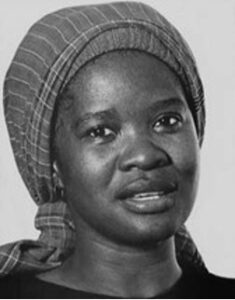
AAAD 290: Memory Work at Penn Center
Ms. Chaitra Powell, Curator, Southern Historical Collection, Wilson Special Collections Library, University of North Carolina-Chapel Hill
“What would be in their library anyhow? …. As I am writing this, Mammy is laughing at me. Information on the Teche strike in the library? News of my mother in the library? It didn’t actually say, “strike in which Mammy’s mother took part.’ Disturbance in the cane field” is what it said” (139)
– Erna Brodber, Louisiana (novel)
This course will engage with the history of the Penn School and Penn Center, as well as Gullah and Geechee heritage, as understood through primary sources at Wilson Special Collections Library and the community resources located on St. Helena Island, South Carolina. Penn School was founded in 1862 as one of the first schools in the South for formerly enslaved West Africans. In 1948, Penn School transitioned into Penn Community Services, taking on the mantle of social justice and ushering in the Civil Rights Movement of the 1960s with Martin Luther King Jr. and the Southern Christian Leadership Conference. We will be interrogating how memory and archives can be activated in the service of historically Black spaces and places.
Student Learning Outcomes:
1. Students will understand the significant historical and cultural contributions of the Penn School and the Penn Center. This understanding will be amplified by witnessing the adaptability, persistence, and resilience of the living descendants in St. Helena Island
2. Students will build confidence in their ability to use their points of view, to critically interpret and engage with primary sources in the Southern Historical Collection (Wilson Special Collections Library) and in broader heritage spaces. Students will see how community archives, community-driven archives, local history museums, and digital spaces allow for marginalized perspectives to be centered.
3. Students will analyze how memory and archives can be leveraged to maintain or reclaim power within communities. Students will connect the stewardship of archives to the material well-being of the communities that are reflected in those communities.
ENG 360: Topics in Africana Literature/ Cultural Studies: Water in the Folklore, Culture, and History of the Gullah Geechee People (*course cross listed with Africana Studies)
Dr. Corrie B. Claiborne, Associate Professor of English, Morehouse College, and Co-P.I., “Movement, Memory, and Justice: Building a Humanities Cultural Heritage Curriculum for Liberation” (Mellon Foundation)
This course investigates how a spirit of rebellion has created a space, as Ras Michael Brown says, “where the land of the living and the land of the dead are the same.” In Brown’s work African-Atlantic Cultures and the South Carolina Lowcountry, he outlines how the folklore and spiritual practices brought from the Congo-Anglo region live to tell the story of how the Gullah resisted subjugation and how these stories often follow the water. Indeed, in song, literature, written and oral history, and in the industries that the Gullah people engaged in around the sea islands we see traces of how water and maritime life functioned as a guiding and organizing touchstone. More specifically, we will look closely at the folklore that surrounds certain waterways like the Pee Dee, Santee and Combahee Rivers and how water functions, in general, as a pathway to freedom.
Students enrolled in the ENG 360: Topics in Africana Literature/ Cultural Studies special topics course will read, analyze, and interpret major works about and by people from the 180 square mile area that stretches, roughly, from Wilmington, North Carolina to the Florida coast and comprises the Gullah homeland. This area, particularly around the Georgia and South Carolina Sea Islands serves as a rich repository of African Diasporic Culture and offers an opportunity to study permutations of certain African traditions, language, and aesthetic practices throughout the American cultural landscape. Representative historical, cultural, sociological, linguistic, and literary works from the antebellum period until the present will be read and discussed. We will be engaged in anthropological activity both in and out of the water itself and we will take trips to both Wormsloe Experiential Learning Center and Hilton Head Island, SC.
Archiving Reconstruction, Civil Rights, and Sea Island Culture
Valerie Babb, Andrew Mellon Professor of the Humanities, Department of African American Studies/Department of English, Emory University
This course will introduce students to the “on-the-ground” history of Reconstruction and Civil Rights movement strategy through classwork, research in the Rose Library archives, and a study away collaboration with the Penn Center National Historic Landmark. For the week of May 21-25, we will join students from other area universities on St. Helena Island, South Carolina at the Penn Center, a site whose history includes housing the former Penn School, one of the earliest educational institutions for the newly freed. Here we will learn about Gullah Geechee history and culture as well as explore Penn Center archives relating to the strategizing meetings held by the Southern Christian Leadership Conference (SCLC) and Student Nonviolent Coordinating Committee. Portions of Rev. Martin Luther King Jr.’s “I Have A Dream” speech for the August 28, 1963 March on Washington for Jobs and Freedom were discovered in a Penn Center cottage named for Hastings Gantt, the formerly enslaved man who was ultimately able to donate fifty acres to found the Penn School.
Students will participate in scheduled arts expositions, performances, and community conversations on subjects such as land use and environmental education, heirs’ property rights, and sacred spaces. All student transportation, room and board will be covered by Andrew W. Mellon Foundation grant funds for public-facing humanities.
In addition to other assignments, our final class project will create articles reflecting on our study and experiences. These will be submitted for publication consideration to Watch Night, the Penn Center journal.
